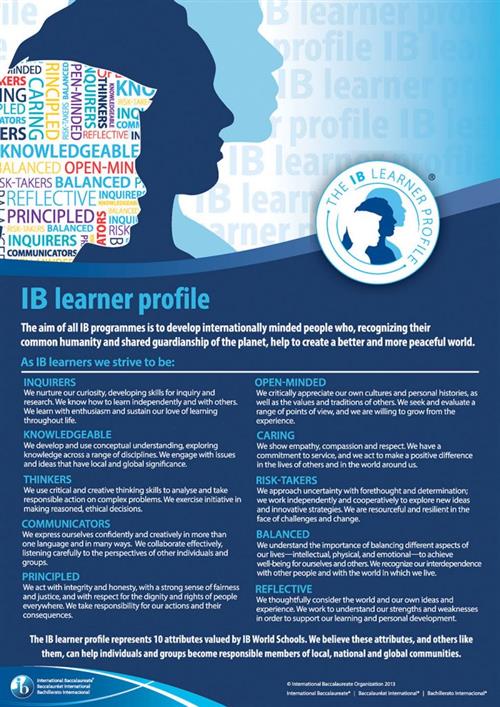- Riverhills Elementary Magnet
- Developing the whole child
International Baccalaureate (IB) Programme
Page Navigation
-

What is an IB Education?
At the centre of international education in the IB are students aged 3 to 19 with their own learning styles, strengths and challenges. Students of all ages come to school with combinations of unique and shared patterns of values, knowledge and experience of the world and their place in it. Promoting open communication based on understanding and respect, the IB encourages students to become active, compassionate, lifelong learners. An IB education is holistic in nature—it is concerned with the whole person. Along with cognitive development, IB programmes address students’ social, emotional and physical well-being. They value and offer opportunities for students to become active and caring members of local, national and global communities; they focus attention on the values and outcomes of internationally-minded learning described in the IB learner profile.
Learn more at: IBO Website
-
Learner Profile

The learner profile supports students in developing international-mindedness and in taking action for positive change. Exercising their agency, students take ownership of their learning, express their ideas and opinions, and reflect on their development of the learner profile attributes. Students have a range of opportunities to develop, demonstrate and reinforce attributes of the learner profile in the daily life of the learning community.
-
Six Transdisciplinary Themes
In the PYP, learning aims to transcend traditional boundaries between subject areas. Students explore six transdisciplinary themes of global significance: who we are; where we are in place and time; how we express ourselves; how the world works; how we organize ourselves; sharing the planet.
Transdisciplinary learning in the PYP conveys learning that has relevance between, across and beyond subjects and transcends borders connecting to what is real in the world. PYP students learn to appreciate knowledge, conceptual understandings, skills and personal attributes as a connected whole. They can reflect on the significance of their learning to take meaningful action in their community and beyond.
Through this process of learning in the PYP, students become competent learners, self-driven to have the cognitive, affective and social tools to engage in lifelong learning.

